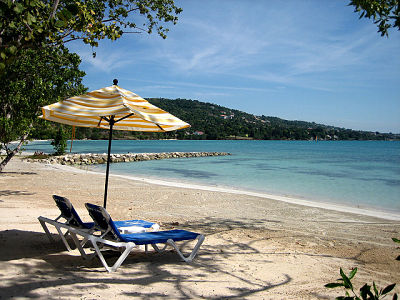Nearly everyone in higher education — whether faculty or staff — loves the summer. The buzz of campus quiets a little and everyone has the chance to catch up on leftover work from the academic year. Summer also provides an opportunity to get away and rejuvenate before the dog days of August arrive. The summer presents a critical time for rest and productivity. However, it is important to take some time now to plan for summer break to maximize your opportunity.

The summer presents a critical time for rest and productivity. However, it is important to take some time now to plan for summer break to maximize the opportunity.
I have not always used my summers effectively. My summers didn’t prepare me for long-term success or help me recover before the start of a new academic year. Early in my career, I worked all summer long with a list of projects a mile long. I would spin my wheels and get frustrated at the lack of progress. My summer plans would include finishing multiple articles, sending off proposals for new projects, and preparing for all my fall classes. Not only would I burn out, but my fall semester would start off on the wrong foot.
One of the joys of higher education is the routine of the academic calendar. I’m not sure how I’d organize my life otherwise. The summer always looms as an oasis of opportunity. What I have learned is that taking a little time in May to plan for summer break can keep the summer from becoming a mirage.
Below are three recommendations that helped me make better use of my summers and I believe will help you too.
- Take a break. You will thank yourself and be more productive over the entire summer if you do this. Take at least a week off and don’t think about projects, goals, or to do lists. Read a good book. Go to a baseball game. Play in the park with your kids. Just as any machine requires maintenance, our minds and bodies do as well.
- Come up with a reasonable plan for summer break. I usually make plans for 10 weeks. This allows me to take two weeks of vacation and two weeks to gear up for the fall semester in August. I have set three big goals for the summer: 1) collect data for a new project I’m starting 2) finish writing and submit an article studying Arne Duncan’s speeches on higher education and 3) start drafting a chapter for the Handbook of Higher Education Theory and Research. For each of these goals, I will divide the project up into smaller pieces and assign them to a week. This allows me to break up the work, pace myself throughout the summer, and make sure I’m setting a reasonable plan. Without this type of planning, a summer of opportunity will turn into one of frustration because of unrealistic expectations.
- Write for an hour a day, five days a week. If you don’t have to write as part of your responsibilities, spend at least an hour on an important long-term project. Spending small amounts of times focused on important work will grow like compound interest. It won’t seem like you are doing much each day, but then you will look up in August and will have managed to make tremendous projects. The routine and busyness of the semester can distract us from big, long-term goals. Use this summer to focus on work that matters.
I hope you have a wonderful, productive, and relaxing summer! Be sure to sign up for email updates so you can keep up with all my posts over the summer.

